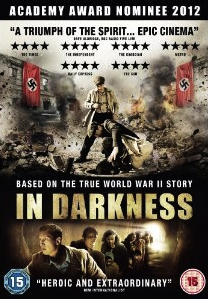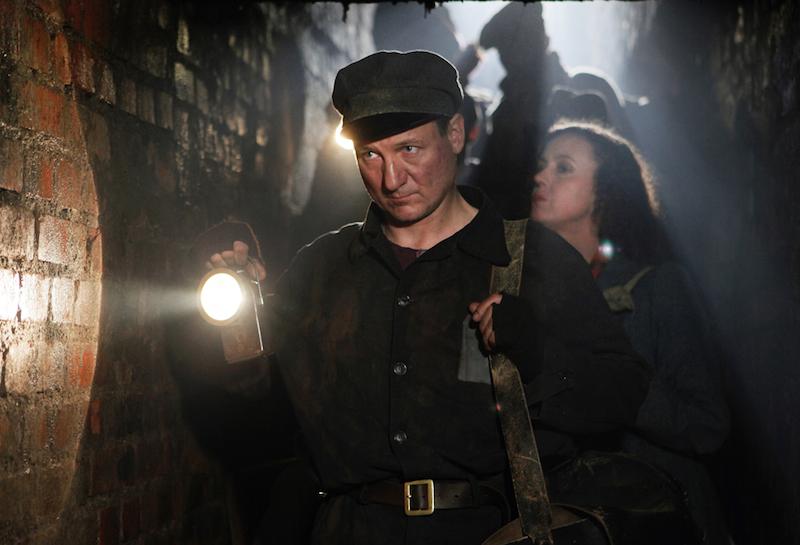No matter how many war films come out about unbelievable suffering or astonishing heroism (and there are several around just now), there will always be more stories untold, hidden unlikely saints, overshadowed because some bigger movie did the job already. Schindler’s List did sterling work to lionise a “good” German; Agnieszka Holland’s In Darkness compellingly brings to light a Polish sewer-worker who concealed 10 Jews from the Germans for 14 months underground.
Holland doesn’t put a halo around Leopold “Poldek” Socha - when we first see him he is burgling a house, his potato face hard and mean, Poles, Germans and Jews all the same to him when he’s out to fill his bag. But running away in the woods, he sees a terrible scene of naked women being herded by Nazi soldiers through the trees. A second later, there’s a snatched glimpse of an open grave littered with the women’s white bodies. You are still reeling from the impact of that extraordinary, half-caught imagery when like a rat he’s scuttling through a manhole cover to disappear into the caverns under the street.
Down there, the unlovely Socha became one of Israel’s unforgotten heroes, because he hid, fed and protected a group of Jews against the increasing carnage overhead in Lvov, as Poles and Germans united against “the Yid”. Socha, like Schindler, starts because this is a cash opportunity - squeezing as much money as he can out of the hunted Jews - but as the stakes get higher, you see how the desperate game of chance grips him, how keeping a step ahead of Nemesis turns his daily wade through the town's urine and faeces into a quest, the buried humanity in him rising until the day it must all end.
 Everything is framed close-up, as if we were inside a matchbox, cramped, dark, lit by torches. A recurrent theme through this intense film is being quiet, making no noise - whether making love in the same room as the sleeping daughter, or being underground escaping detection, trying to keep children silent when rats and foulness are everywhere and the potential disaster when a baby is born screaming among the filth.
Everything is framed close-up, as if we were inside a matchbox, cramped, dark, lit by torches. A recurrent theme through this intense film is being quiet, making no noise - whether making love in the same room as the sleeping daughter, or being underground escaping detection, trying to keep children silent when rats and foulness are everywhere and the potential disaster when a baby is born screaming among the filth.
A love story emerges movingly among the refugees in parallel to the even more touching love between Socha and his comely wife, which is much enriched by the bleakly humorous performance of Robert Więckiewicz as Socha and the kindly Kinga Preis as Wanda. You wonder how he got away with it, considering some of the trailing ends in Holland's economical treatment, but your focus is swept away from joining the factual dots into the Stygian oppression that she brings to a black, subterranean hell of whispering echoes, stench, ordure, rats, dead bodies of comrades and children playing hide-and-seek.
The DVD bonus feature offers a neat morsel of circularity for movie-lorists. After Holland finished making the film, she discovered that the little girl saved in the story was still alive, Krystyna Chiger - and Chiger’s husband was one of Schindler’s Jews.
Watch the official trailer for In Darkness















Add comment